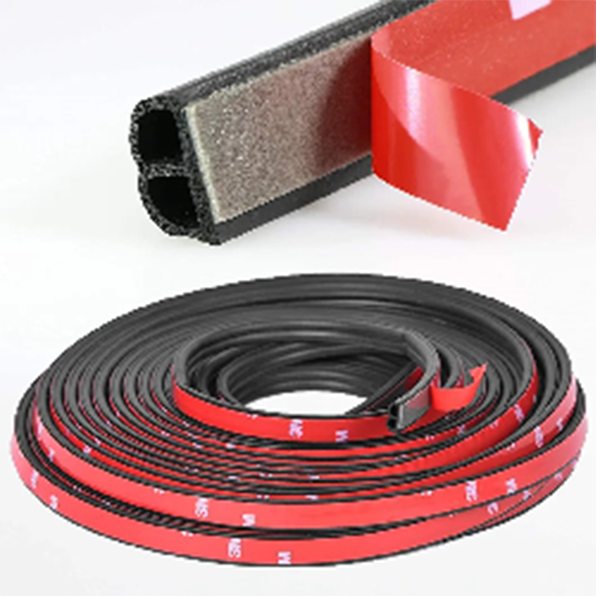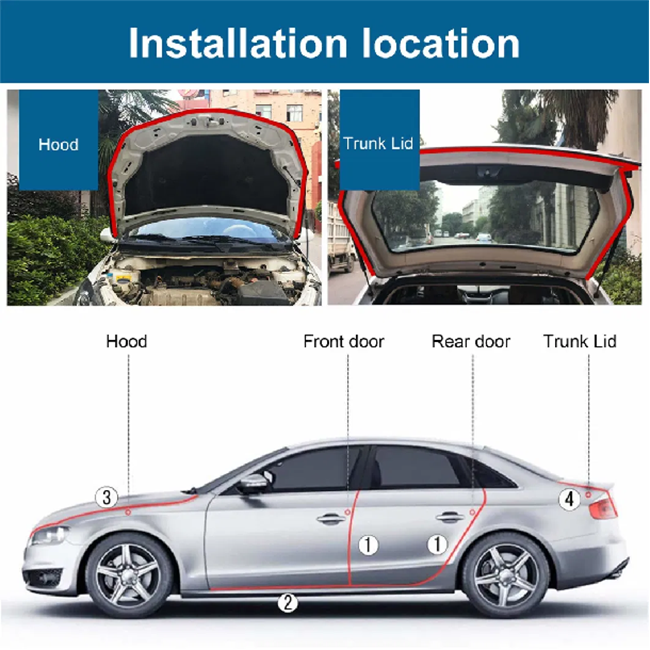One of the most overlooked yet crucial components when it comes to maintaining your car is the door and window seals. These seals play a vital role in protecting the interior of your car from external factors such as water, dust and noise. Choosing the right material for your car door and window seals is critical to ensuring longevity and effectiveness. In this guide, we’ll explore the different materials available, including silicone, neoprene, EPDM, PVC, TPE, and TPV, to help you make an informed decision.

Silicone seals are known for their durability and resistance to extreme temperatures. They are also highly resistant to UV, ozone and moisture, making them an excellent choice for automotive door and window seals. Neoprene seals, on the other hand, are popular for their flexibility and resistance to oil and chemicals. They also effectively seal out water and air, making them suitable for a variety of weather conditions.
EPDM (ethylene propylene diene rubber) seals are widely used in the automotive industry due to their excellent weather resistance and durability. They can withstand extreme temperatures and are resistant to ozone and UV rays. PVC (polyvinyl chloride) seals are known for their affordability, abrasion resistance and chemical resistance. However, they may be less effective in extreme weather conditions than other materials.
TPE (thermoplastic elastomer) and TPV (thermoplastic vulcanizate) seals combine flexibility and durability. They are resistant to weathering, ozone and aging, making them suitable for long-term use in automotive applications. When choosing the right material for car door and window seals, factors such as weather conditions, durability, flexibility and resistance to external factors must be considered.
In addition to materials, the design and installation of a seal play a vital role in its effectiveness. Properly installed seals ensure a tight and secure fit, preventing water and air from penetrating into your car’s interior. Regular maintenance and inspection of seals is also important to identify any signs of wear and replace them as needed.

When purchasing car door and window seals, it is important to consider the specific requirements of the vehicle and the environmental conditions it will be exposed to. Consulting a professional or seeking advice from an automotive expert can help you make an informed decision. Investing in high-quality seals made from the right materials will not only protect your car’s interior, but also help improve its overall longevity and performance.
All in all, choosing the right material for your car door and window seals is crucial to maintaining the integrity of your vehicle. Whether you choose silicone, neoprene, EPDM, PVC, TPE or TPV seals, it is important to understand their characteristics and suitability for your specific needs. By making smart decisions and prioritizing quality, you can ensure your car remains protected and comfortable for years to come.
Post time: Jul-25-2024
